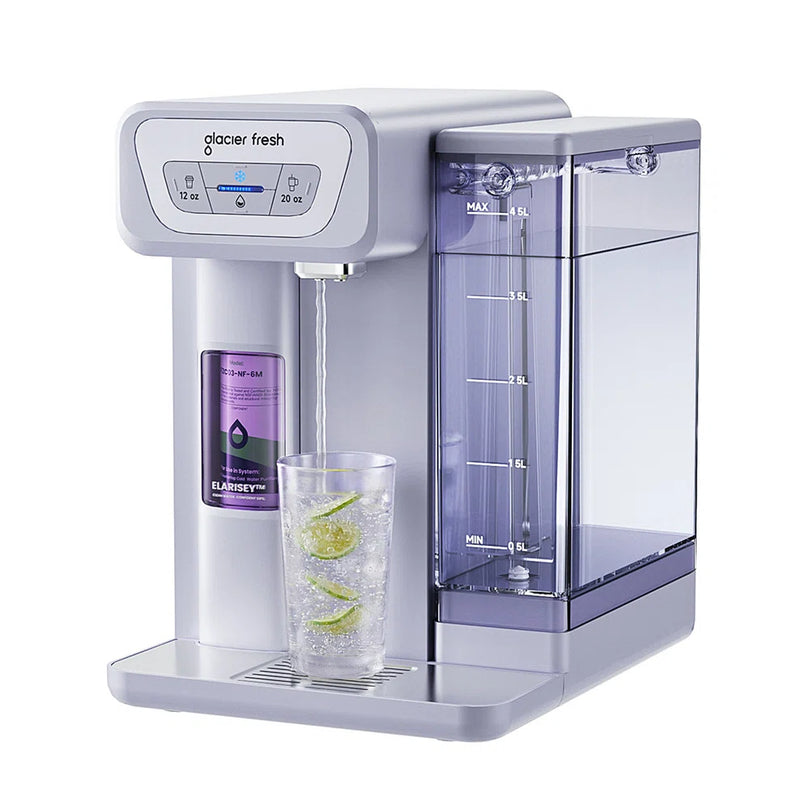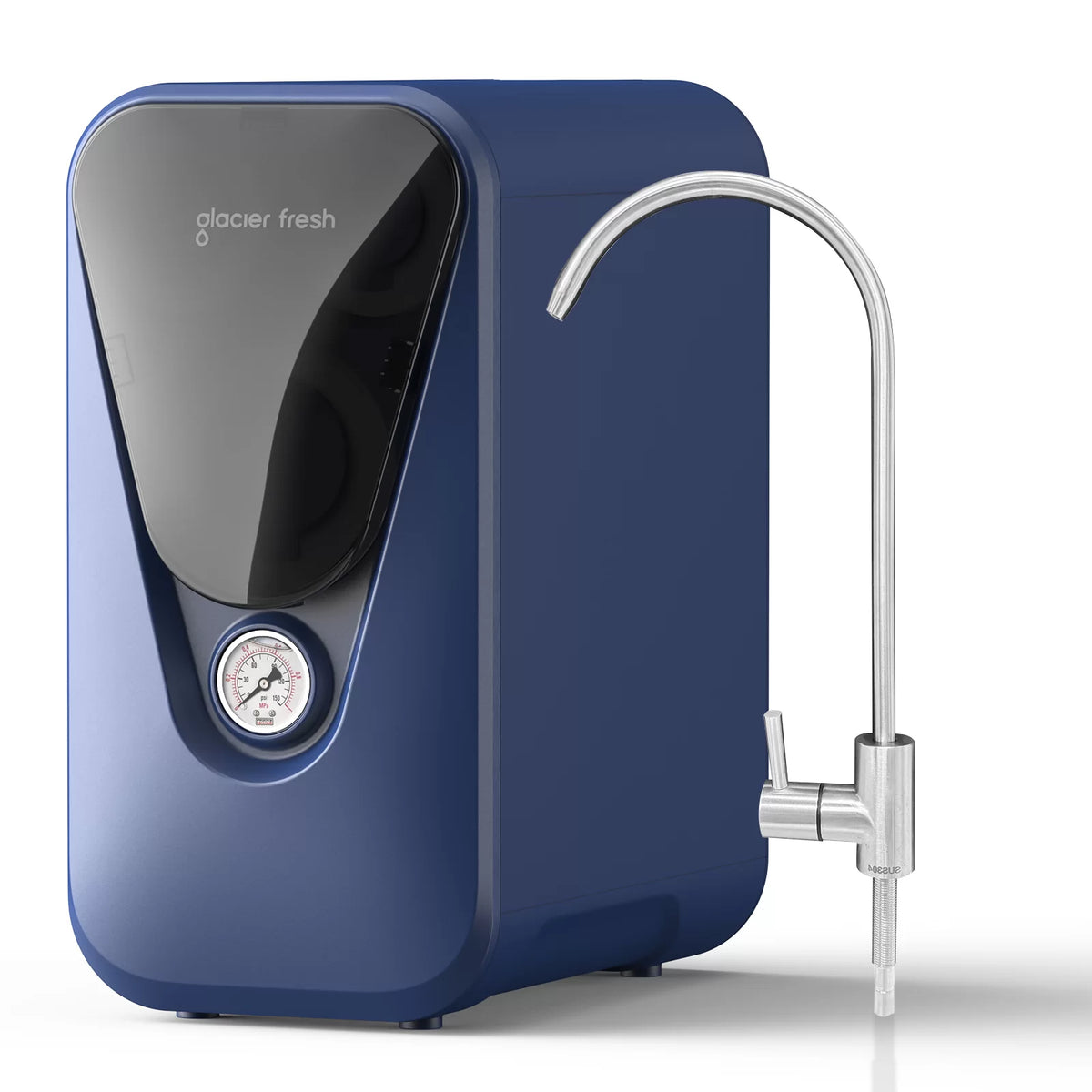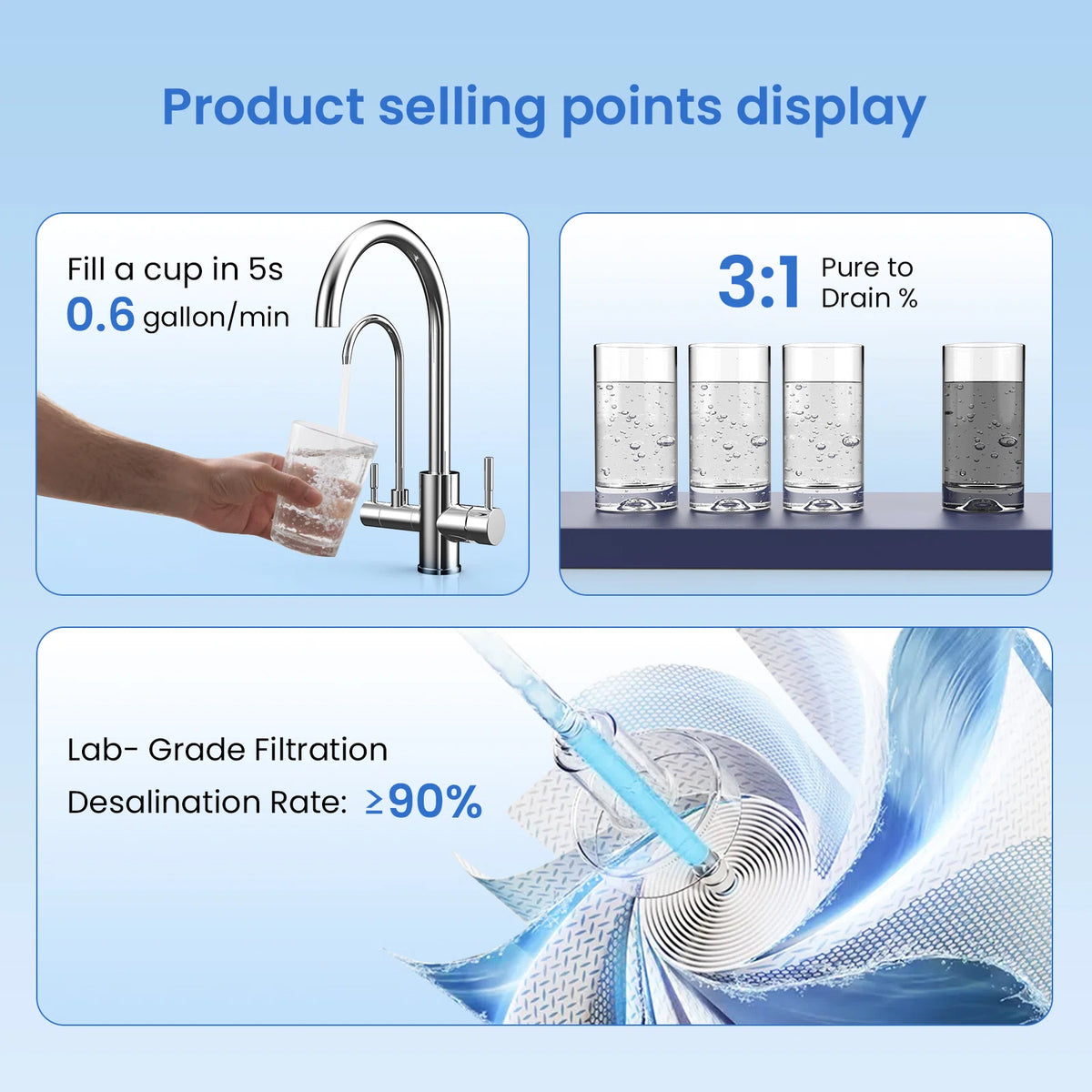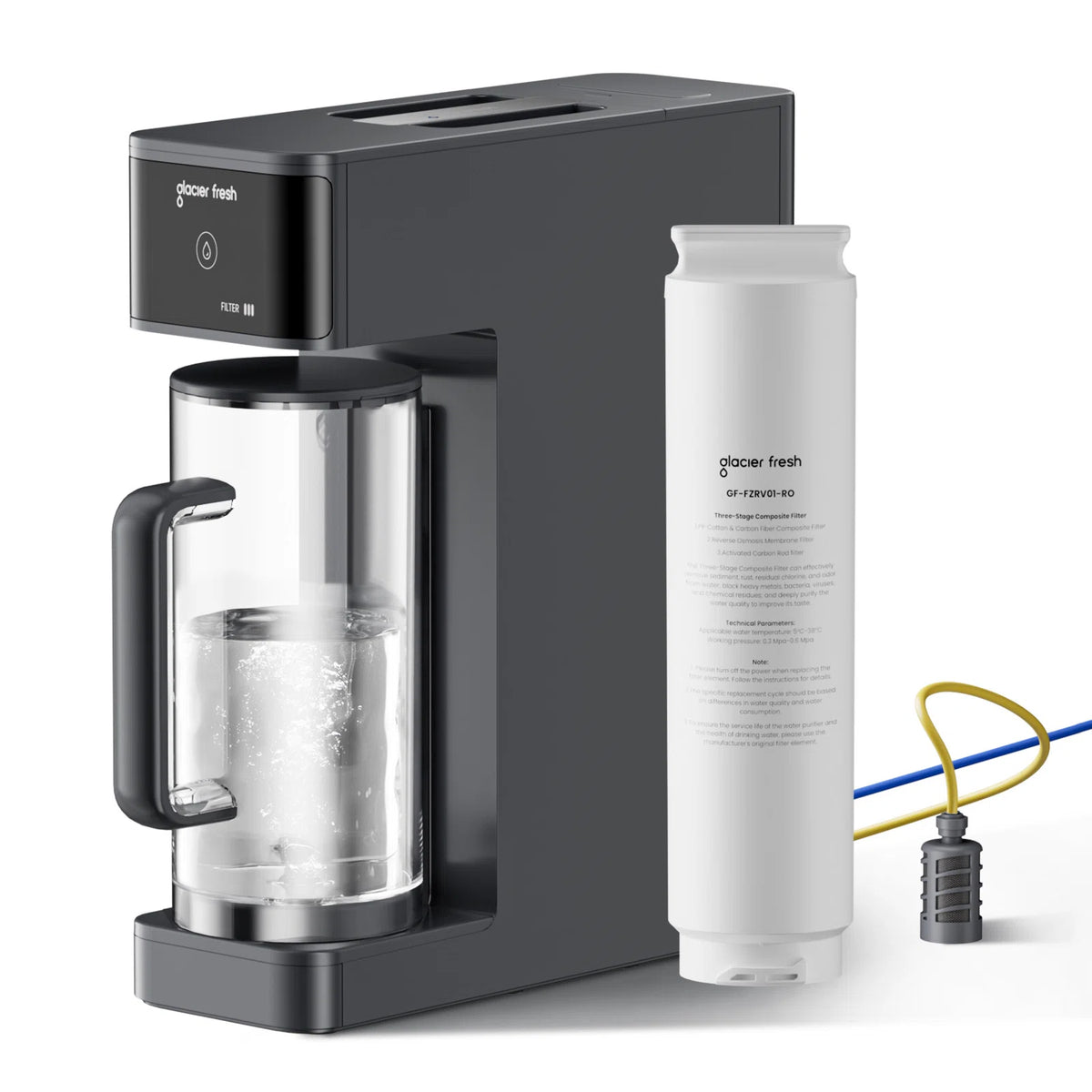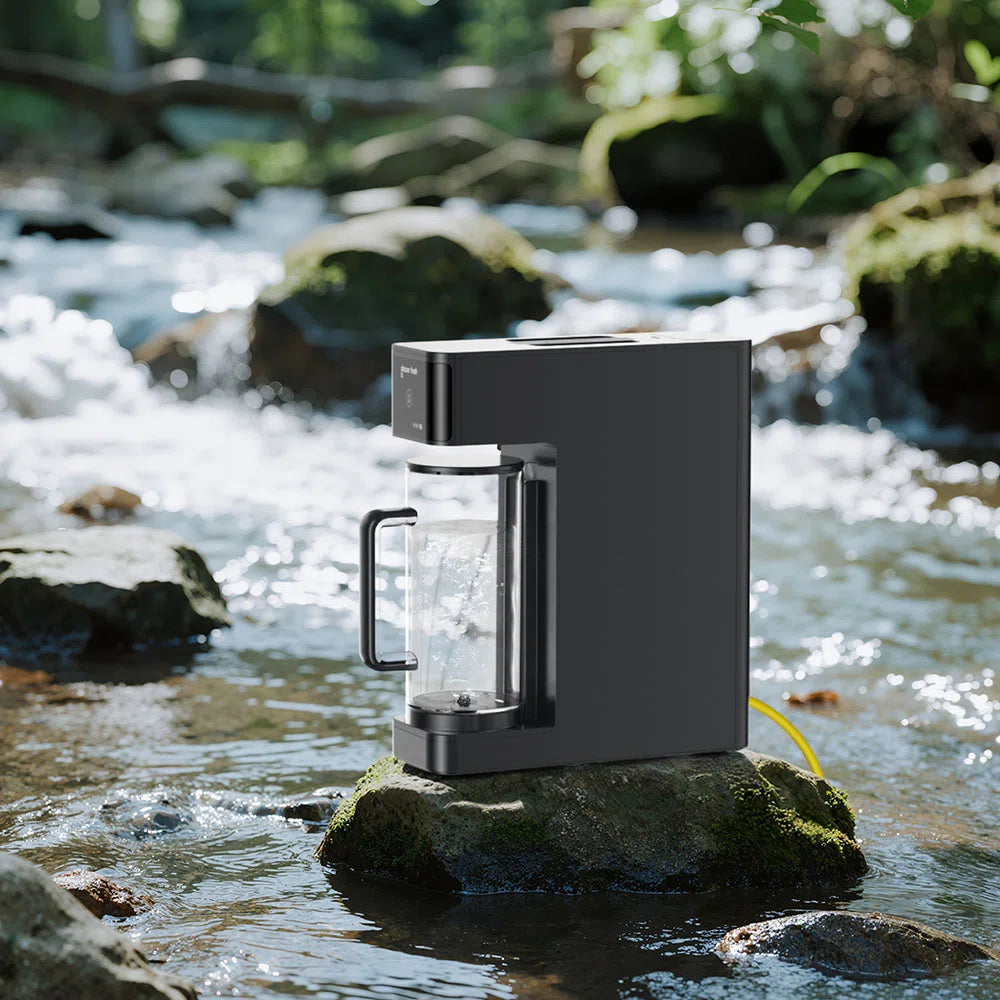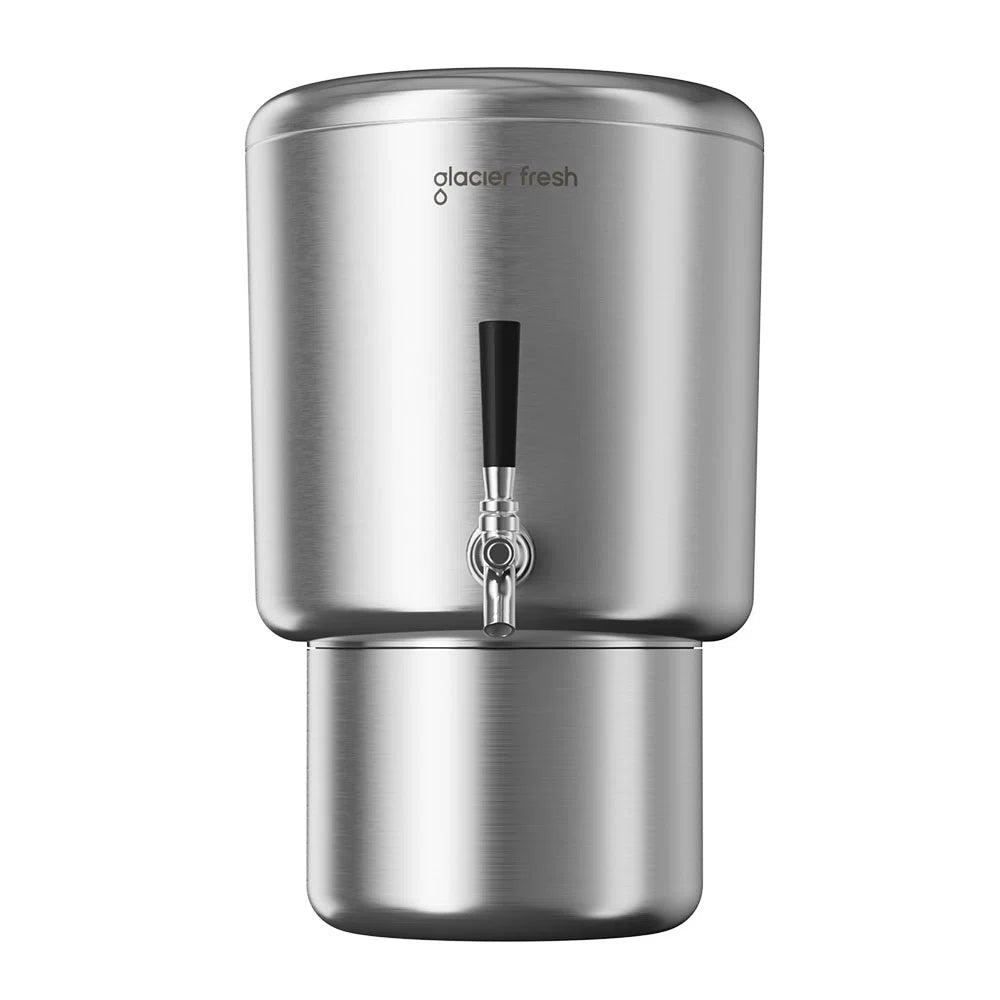Table of Contents:
The concept of night owls
Why does staying up late influence daily water intake?
Factors that may contribute to insufficient hydration among night owls
Health risks associated with being a night owl
Five hydration hacks for late nights
FAQs
Conclusion
Imagine your body as a well-tended garden, flourishing with vitality during the day. Yet, as night falls and you embrace the solitude of being a night owl, the garden starts to thirst for nourishment. Have you ever wondered how your late-night habits might affect your hydration levels? Perhaps you've felt the lingering dryness in your throat as you burn the midnight oil. But fear not, for there are ways to quench this nighttime thirst and ensure you meet your daily water intake goals.
The concept of night owls

You might identify as a night owl if you stay up late into the night. Night owls often have distinctive sleep patterns, with their circadian rhythms aligning more with nighttime activities than early mornings. This preference can lead to different energy levels throughout the day than early risers. Night owls tend to feel more alert and productive during the evening hours, experiencing peak energy levels when others are winding down for the day.
Due to these unique sleep patterns and circadian rhythms, night owls may struggle to maintain the same daily routines as morning people. Their energy levels typically surge later in the day, making it easier to stay awake and engaged during nighttime hours. However, this can also mean that they may struggle to wake up early and feel fully energized in the mornings, impacting their daily schedule and productivity levels.
Why does staying up late influence daily water intake?
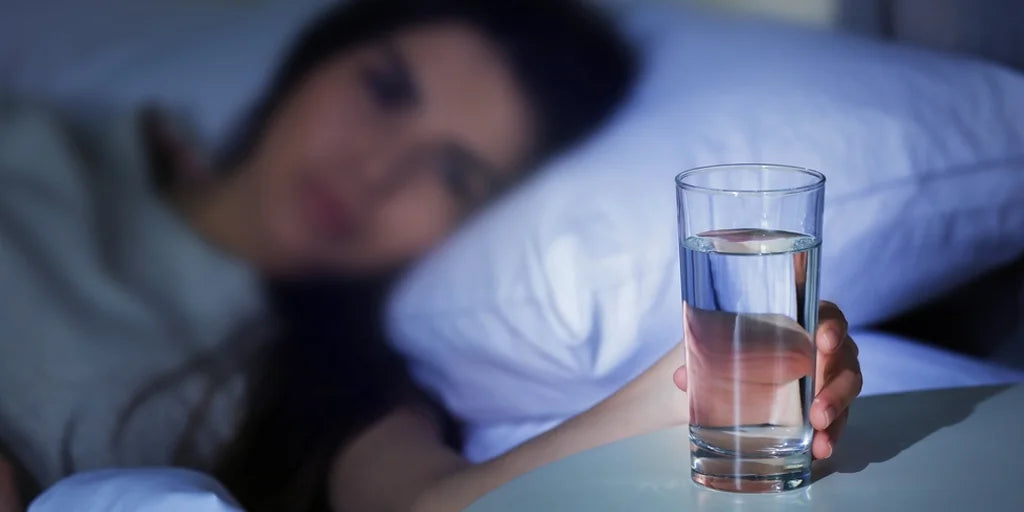
Night owls' tendency to stay up late can impact their daily water intake levels. When you burn the midnight oil, several factors come into play that can affect how much water you drink:
1. Impact of screen time: Spending long hours in front of screens before bedtime can decrease water intake. The blue light emitted by devices can disrupt your body's natural clock, making you less mindful of staying hydrated.
2. Late-night cravings: Staying up late often triggers cravings for unhealthy snacks or beverages high in sugar and caffeine, which can divert your focus from drinking enough water.
3. Sleep disruption: Irregular sleep patterns can interfere with your body's thirst signals, causing you to overlook the importance of drinking water throughout the night. This can result in dehydration, affecting your overall well-being and energy levels the next day.
Factors that may contribute to insufficient hydration among night owls
Irregular sleep patterns
If you often struggle to maintain a consistent sleep schedule, you may be experiencing irregular sleep patterns, contributing to insufficient hydration. Irregular sleep patterns can disrupt your body's natural hydration levels, leading to dehydration. When you don't get enough quality sleep, your body may not have adequate time to regulate its hydration levels properly. This can result in decreased water intake and an imbalance in your body's fluid levels.
Additionally, irregular sleep patterns can impact hormone regulation and affect how the body retains and uses water. To combat this, it's essential to prioritize getting consistent and quality sleep to support the body's hydration needs.
Late-night snacking habits
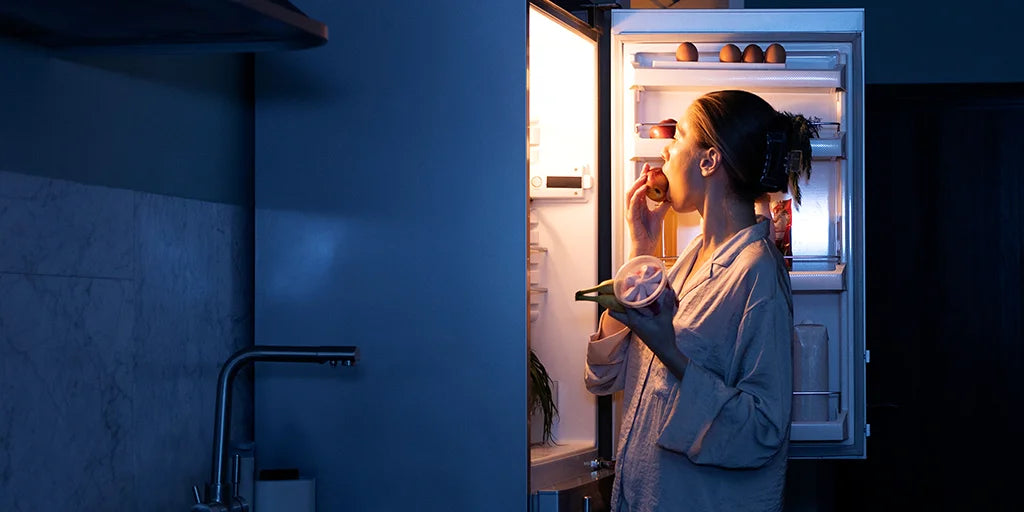
Late-night snacking habits can significantly impact your hydration levels, affecting your body's optimal fluid balance. Consuming salty or sugary snacks before bed can increase thirst at night, potentially causing you to wake up dehydrated. Foods high in sodium can contribute to water retention, making it harder for your body to regulate hydration levels.
Additionally, sugary snacks can cause spikes in blood sugar levels, triggering more frequent urination and potentially leading to dehydration. Be mindful of your late-night snack choices and choose hydrating options like fruits or vegetables to support your body's hydration needs. Remember, what you eat before bed can be crucial to your overall hydration status.
Limited access to water sources
Limited access to water sources can also contribute to insufficient hydration among night owls, impacting their body's ability to maintain optimal fluid balance. When you're up late at night, it's crucial to have easy access to water to stay hydrated. If you have water readily available, you may remember to drink enough throughout the night. This can lead to dehydration, especially when combined with the natural tendency of night owls to have disrupted sleep patterns.
Consider keeping a water bottle or glass by your bedside or in a convenient location to address this issue. By making water more accessible, you can improve your hydration levels and support your body's overall health, even during late hours.
Influence of caffeine consumption
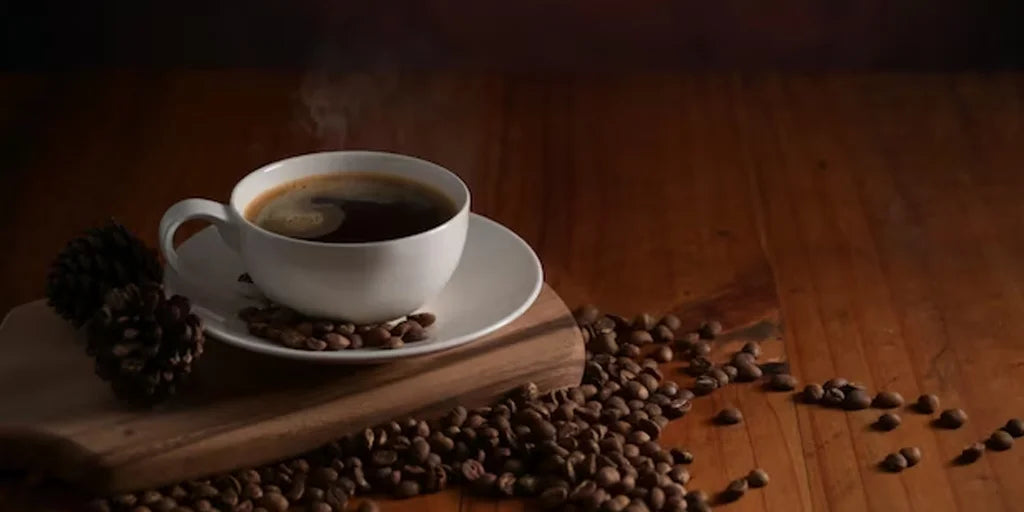
To maintain hydration levels during late hours as a night owl, be mindful of caffeine's influence on your body's fluid balance. Caffeine is a diuretic, meaning it can increase urine production and lead to dehydration if not counteracted by adequate water intake.
When you consume caffeinated beverages like coffee, tea, or energy drinks, it's essential to remember that they may contribute to your overall fluid loss. Pair each caffeinated drink with a glass of water to offset this effect. This simple habit can help you stay hydrated while enjoying your favorite beverages.
Lack of awareness of hydration needs
Many individuals underestimate their hydration needs, often unaware of the crucial role water plays in maintaining overall health and well-being. Staying hydrated is essential for proper bodily functions, including regulating body temperature, aiding digestion, and transporting nutrients. Unfortunately, a lack of awareness about hydration needs can lead to chronic dehydration among night owls.
You may need to realize that you need to pay attention to your body's need for water, especially during late-night hours when hydration is often overlooked. Not recognizing the signs of dehydration or understanding the importance of adequate fluid intake could put your health at risk. It's vital to educate yourself on the significance of staying hydrated and make conscious efforts to meet your body's hydration requirements for optimal well-being.
Health risks associated with being a night owl
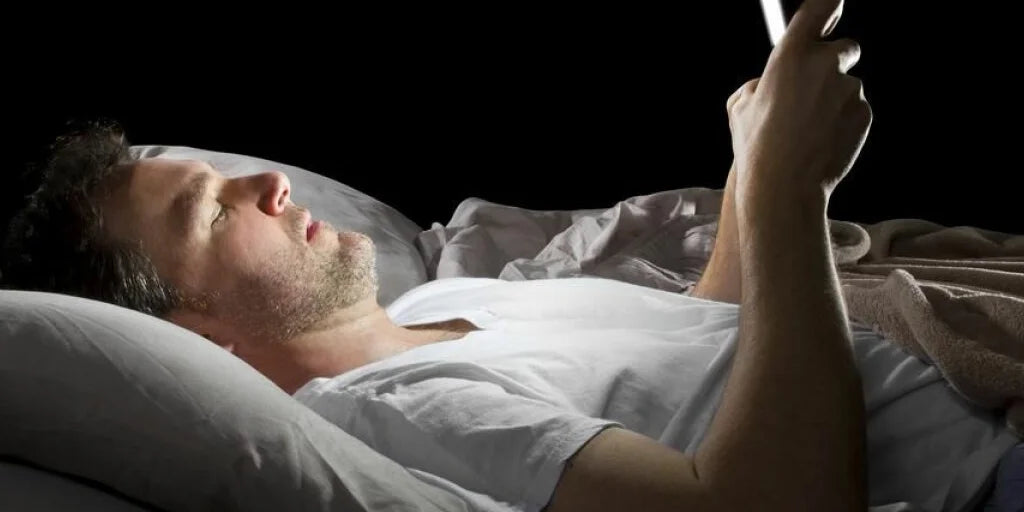
Night owls face an increased risk of various health issues due to their disrupted sleep patterns and lifestyle choices. Being a night owl can lead to:
- Sleep deprivation: Staying late and waking up late can result in inadequate sleep duration and quality, impacting overall health.
- Circadian rhythm disruption: Night owls often have irregular sleep-wake cycles, which can destroy the body's natural internal clock.
- Increased cortisol levels: Disrupted sleep patterns can lead to higher levels of the stress hormone cortisol, which can negatively affect metabolism and immune function.
- Higher risk of chronic diseases: Studies have shown that night owls may have a higher risk of developing conditions like obesity, diabetes, and cardiovascular diseases due to the combination of sleep deprivation and lifestyle factors.
Five hydration hacks for late nights
Drink water consistently

To stay hydrated during late nights, consistently drink water throughout the evening. Keeping a water bottle by your side or setting reminders to take regular sips can help you maintain hydration levels. Getting caught up in work or entertainment and forgetting to drink is easy, but staying mindful of your water intake is crucial. By consciously trying to hydrate consistently, you can combat the dehydrating effects of late nights.
Try sipping water between tasks or during breaks to ensure you're replenishing fluids regularly. Developing a habit of reaching for water throughout the evening will not only help you stay hydrated but also promote overall well-being.
Opt for hydrating snacks
Choosing hydrating snacks is essential for maintaining your hydration levels during late nights. Opt for snacks like watermelon, cucumbers, or yogurt to keep yourself hydrated while curbing hunger. These snacks contain high water content, helping you stay refreshed and hydrated throughout the night. Additionally, consider snacking on cherry tomatoes, celery sticks, or bell peppers with a high water content.
Avoid salty snacks, as they can further dehydrate you. By choosing hydrating snacks, you can supplement your water intake and support your body's hydration needs during late-night study sessions or work shifts.
Use electrolyte-rich beverages

Consider incorporating electrolyte-rich beverages into your late-night hydration routine for replenishment and hydration support. Electrolytes like sodium, potassium, and magnesium are essential for maintaining fluid balance. Opt for drinks like coconut, sports, or electrolyte-enhanced water to help replace the electrolytes lost through sweat or daily activities.
These beverages provide hydration and aid in restoring the essential minerals your body needs to function optimally. Be mindful of added sugars when choosing electrolyte-rich options and opt for low-sugar or sugar-free varieties.
Set hydration reminders
Remember to schedule regular hydration reminders throughout your late-night activities to ensure you stay adequately hydrated. Setting alarms on your phone or leaving sticky notes in strategic places can help you remember to drink water consistently. Getting caught up in work or entertainment and forgetting to hydrate is easy, so these reminders are crucial. Consider using apps that track your water intake and send notifications when it's time to drink more.
Incorporating hydration reminders into your routine will make you more likely to keep your water levels up, which is essential for maintaining focus and energy during late nights. Stay on top of your hydration game with simple reminders that make a big difference!
Limit caffeine intake
To maintain optimal hydration levels during late nights, it's important to be mindful of your caffeine intake. While caffeine can provide a temporary energy boost, it's also a diuretic that can increase your need to urinate, leading to dehydration.
Limiting your caffeine intake, especially in the hours leading up to bedtime, can help you stay better hydrated throughout the night. Consider switching to decaffeinated options or herbal teas as the evening approaches. If you need a pick-me-up, opt for water or a hydrating beverage instead of reaching for another cup of coffee or energy drink. Being conscious of your caffeine consumption can significantly contribute to your overall hydration levels during late nights.
FAQs
How does caffeine consumption during late hours affect hydration levels for night owls?
Drinking caffeine late at night can disrupt your hydration balance. It leads to increased urination, potentially dehydrating you. Consider limiting late-night caffeine intake to help manage your hydration levels and reduce those midnight cravings.
Can drinking water during the night disrupt sleep patterns for night owls?
Drinking water at night might interfere with your sleep quality and hydration balance. Adjust your nighttime habits to meet your daily water intake goals without disrupting your restorative sleep patterns.
Conclusion
So, the next time you find yourself burning the midnight oil, prioritize your hydration. By understanding the unique challenges night owls face and implementing simple hydration hacks, you can ensure you meet your daily water intake goals. Stay hydrated, stay healthy, and thrive in the late-night hours!







